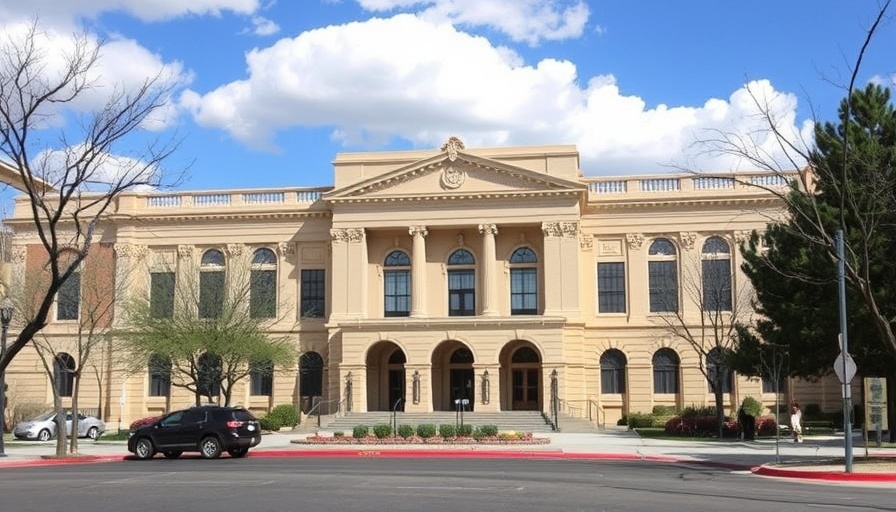
Rethinking Public Debt in El Paso
Across the state of Texas, a significant conversation is brewing regarding the validity and repercussions of certificates of obligation (COs). In El Paso, a disconcerting trend has emerged—local governments are bypassing voter consent to fund large-scale projects. Just recently, county officials announced plans to issue over $54 million in COs for various infrastructure initiatives, including essential services like water and sewer improvements and flood control upgrades. Yet, the contentious nature of this financing tool could have long-lasting impacts on the community's trust and fiscal health.
The Purpose of Certificates of Obligation
Historically, certificates of obligation were designed to address urgent financial needs—an avenue for municipalities to swiftly mobilize funds in the face of emergencies. However, what once was a method of responsible governance is now being exploited without adequate justification. From 2013 to 2022, Texas municipalities saw a staggering 48% increase in CO debt, racking up over $6 billion statewide. Closer to home, El Paso has accrued over $851 million in COs for projects that would have otherwise required rigorous public scrutiny.
Public Resistance and Advocacy for Change
The sentiment among El Paso residents is clearly shifting as they begin to recognize this pattern of overreach. For instance, when University Medical Center proposed a significant $345 million CO issuance for hospital enhancements, grassroots organizations swiftly mobilized. The LIBRE Initiative successfully gathered over 35,000 signatures to place the matter on the ballot, showcasing citizens' rights to have a say in considerable financial commitments. This response illustrates a growing desire among the populace to reclaim their democratic voice and reshape local governance.
Implications for Economic Health
This trend of issuing COs without voter approval raises critical questions about fiscal responsibility in El Paso. Currently, 18.5% of the county's population lives below the poverty line, and many residents cannot afford to shoulder additional financial burdens from unvetted public debt. Local governance should prioritize opening doors to economic opportunities rather than encumbering taxpayers with non-essential obligations. The critical voice of constituents needs to be front and center in decisions involving their hard-earned tax dollars.
As we move forward, it’s imperative for El Paso’s leaders to respect the democratic process and engage with citizens on significant fiscal matters. A call for transparency and accountability in public spending is not only prudent; it's essential for rebuilding trust and ensuring the integrity of our local government. Ensuring that taxpayers have a say in how their money is allocated is not just a financial necessity but a fundamental right in any healthy democracy.
 Add Row
Add Row  Add
Add 




Write A Comment